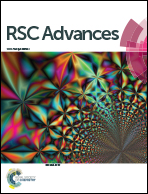Immunomodulation activity of alkali extract polysaccharide from Plantago asiatic L. seeds
Abstract
Numerous polysaccharides have been isolated from plants and used as a source of biological response modifiers in therapeutic agents. We previously found a novel acidic polysaccharide from Plantago asiatic L. seeds, named PLP, having strong antioxidant abilities in vitro. To further elucidate the role of PLP as a biological response modifier, the immunomodulating activities of PLP in macrophage cells were explored in the current study. We confirmed that stimulation of murine macrophage cells with PLP resulted in cell proliferation. PLP could directly bind to macrophage with saturable and reversible character and required TLR2 and TLR4 participation. PLP interaction with TLR2 and TLR4 led to the activation of intracellular p38, ERK and JNK. Furthermore, specific inhibitors of p38, ERK and JNK could weaken the ability of PLP to induce macrophage cell proliferation. Overall, this study indicated for the first time the immunostimulating properties of PLP on macrophage cells through a receptor-mediated mechanism, which involves TLR2 and TLR4 MAPK signaling pathways, and highlighted the role of PLP as an efficacious biological modifier in oncologic immunotherapy.


 Please wait while we load your content...
Please wait while we load your content...